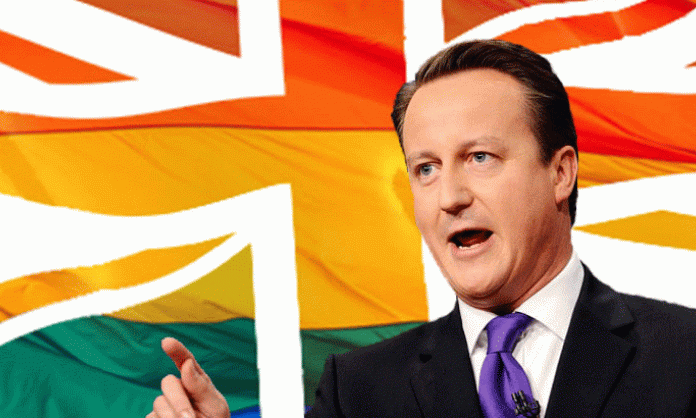The passage of same-sex marriage laws in the UK and New Zealand has rightly been the cause of celebration among millions of people around the world passionate about equal rights for LGBTI people. However, the fact that these laws have recently been passed by conservative governments has also led to an unnecessary softness towards right wing politicians among marriage equality supporters.
The basis on which we advocate for marriage equality matters. Supporting marriage rights for LGBTI people should be about equal rights and repealing the state’s right to intervene in the personal lives of a marginalised minority. This battle is about knocking down a pillar of state-sanctioned oppression that actively excludes LGBTI couples from rights afforded to heterosexuals. In short, it’s a fight for civil rights. Not everybody sees it this way. In an article for the Washington Post titled “Why fiscal conservatives should love gay marriage”, it’s argued that marriage equality is supportable because it will “help to decrease the deficit” and “reduce dependence on public benefits”. The article cites calculations of the impact of same-sex marriage on outlays and “restraining entitlement spending”. Equality is reduced to marriage rights as a means to privatise social benefits.
Increasingly, conservatives are attempting to enshrine same-sex marriage as something consistent with conservative values. New Zealand Prime Minister John Key made a ₤50,000 bet with his right-wing British counterpart, David Cameron, on who would be the first to legalise same-sex marriage. Cameron, whose Tory government plans to pass marriage equality in the UK, argues, “I don’t support gay marriage despite being a Conservative. I support gay marriage because I’m a Conservative.” Like Cameron, New South Wales Premier Barry O’Farrell explicitly frames his support for marriage equality in conservative ideology and cites “commitment” and belief in the “family unit” as a primary reason. Both ignore that conservatives have always been the last to support LGBTI rights, only surrendering their prejudice when forced to do so by popular protest or political pressure.
This shift reflects several changes brewing in society. The first is the widespread popular support for same-sex marriage in many Western countries. Polls show about two-thirds of Australians favour equal rights and that a majority in the USA support it, with similar trends in the UK and other European countries.
Another critical factor is the trend towards generalised cultural acceptance of same-sex relationships in Australian city life. This has taken the form of “gay-friendly” suburbs and public pride parades with broad appeal such as Mardi Gras. These changes are very limited – they have not abolished homophobia or led to total equality for LGBTI people by any means. However, such changes have enabled same-sex relationships to become mainstream enough to be claimed by some conservatives as part of a new form of nuclear family.
Capitalism is a system that has historically hinged on the nuclear family unit as a means to rear children and reproduce working class labour at minimum cost to the capitalists. It has achieved this by pushing the burden of domestic labour onto women. However, in recent years, the traditional family unit has undergone changes brought about by the mass integration of women into the workforce and the legacy of the women’s and gay liberation movements. This has meant that our rulers have needed to adapt to changing social values in order to preserve the family unit. This drive to modernise and fortify the capitalist nuclear family unit is a key factor underpinning changes to the conservative attitude to same-sex marriage.
We should argue against appealing to the “moral instincts” of conservatives as a campaign strategy. Rodney Croome, from Australian Marriage Equality, has asserted, “We need to speak directly to conservatives”. Even more absurd was the lobby group’s call to support pro-marriage equality Liberal Party candidates over Labor and Green candidates in the upcoming elections. Even Adam Bandt’s speech at the 11 May marriage equality rally in Melbourne called upon the crowd to contact their local Liberal Party office to engage with them.
Forgotten in all of this fawning is that conservatives are the same people waging hysterical racist campaigns against Muslims, forcing millions into poverty through their austerity cutbacks, pushing back the rights of women under the guise of family values and bombing the Middle East back into the stone age. They are fighting the class war for their side, the rich and powerful. The fact that sections of the ruling class now find it politically expedient to declare their support for same-sex marriage rights does not change any of this. It is little more than a droplet in a cesspool of bigotry, warmongering and relentless attacks on the oppressed and the working class.
The basis on which marriage equality is argued for and won has implications for the legacy of the struggle. Conservatives would prefer to stifle any momentum towards a broader fight for civil rights for all of the oppressed. The left needs to articulate a way forward that ensures the growing victories for marriage equality inspire ordinary people to demand even more rights, to challenge the system and to fight for genuine, total liberation.








